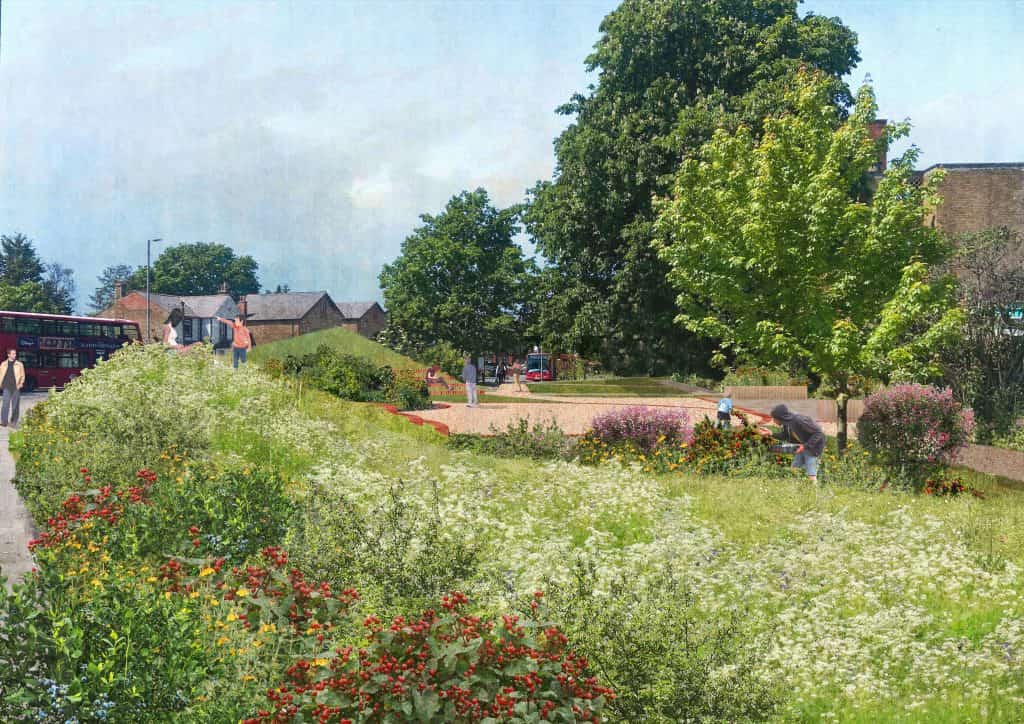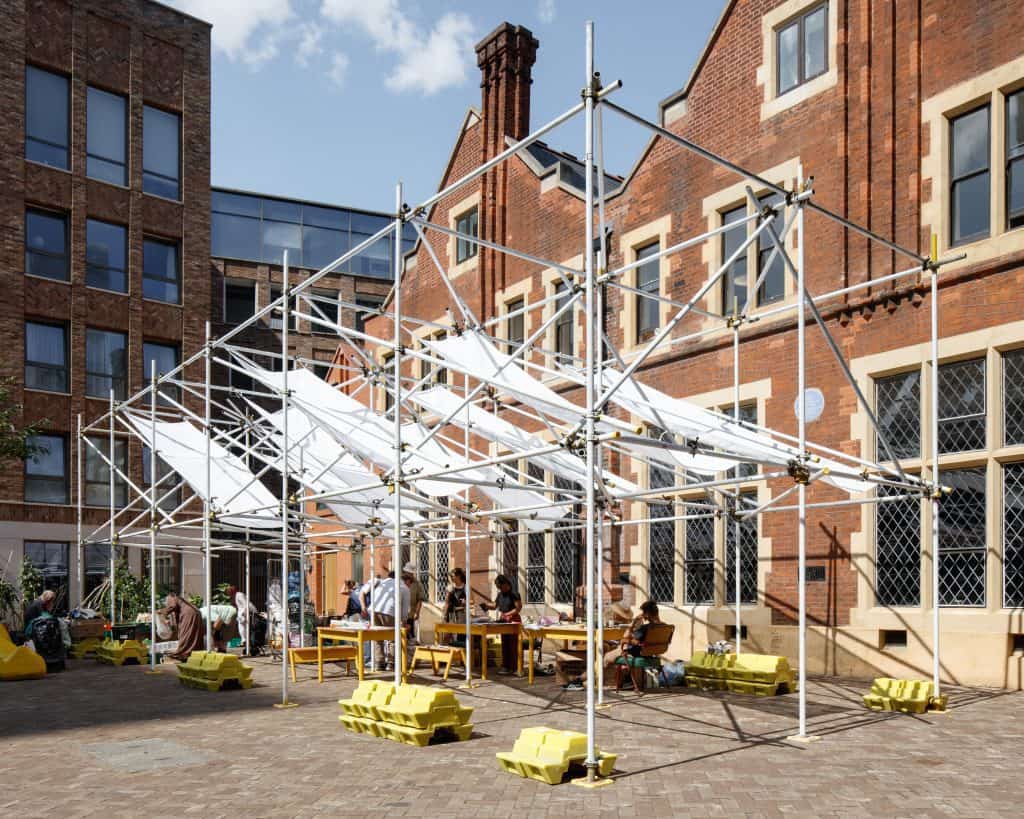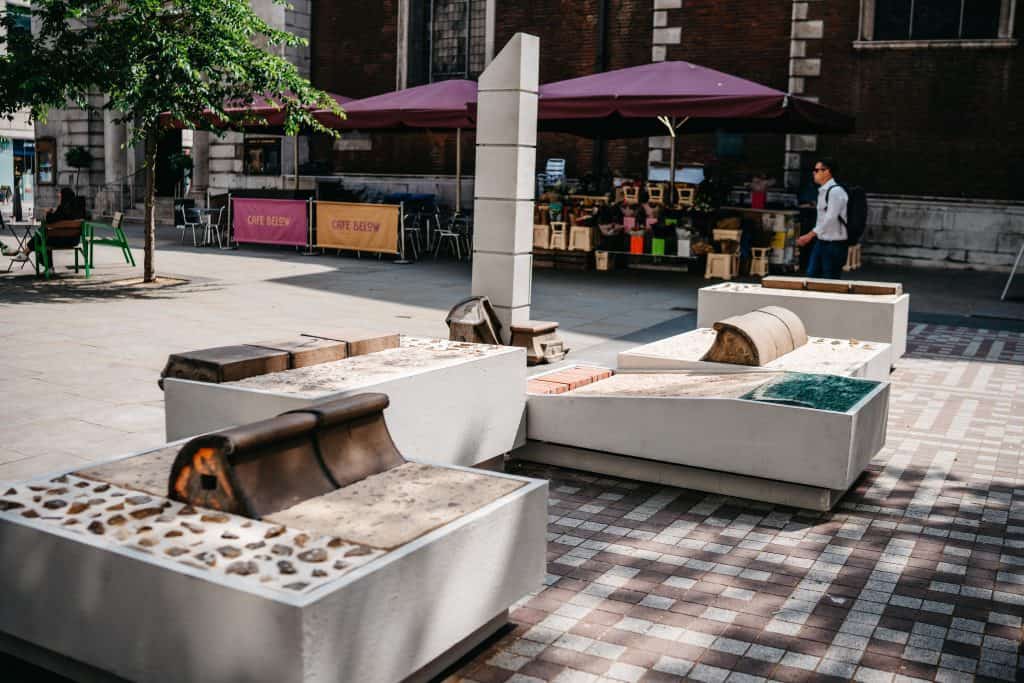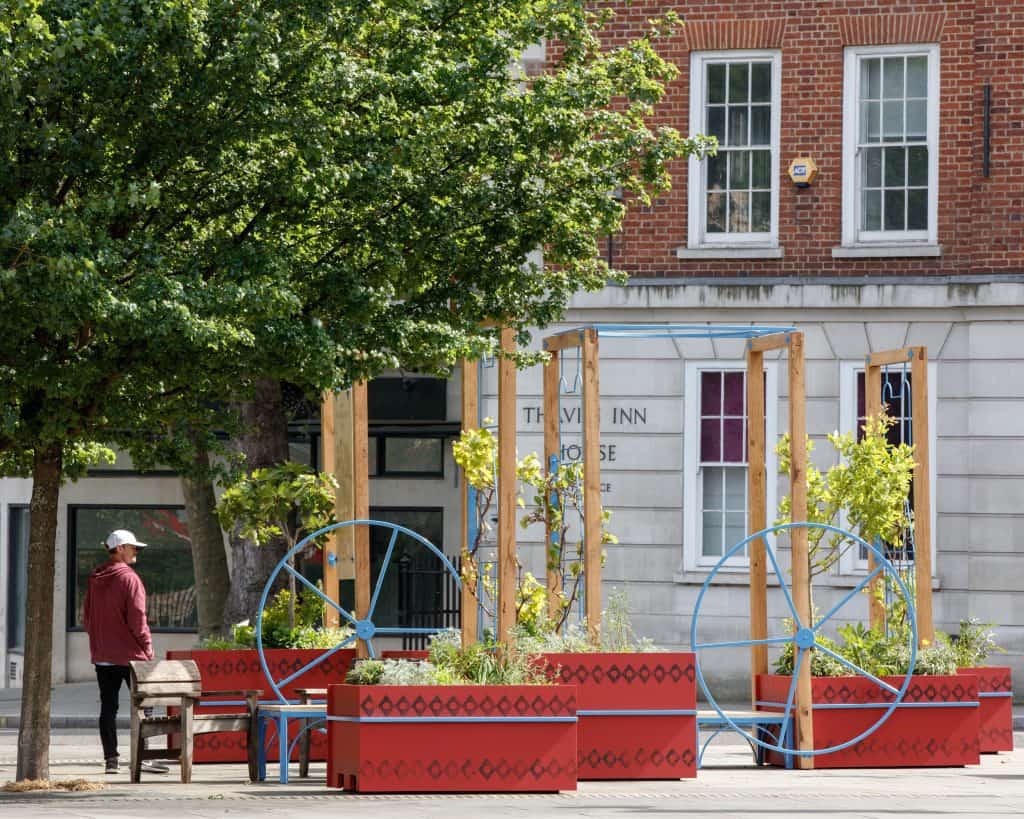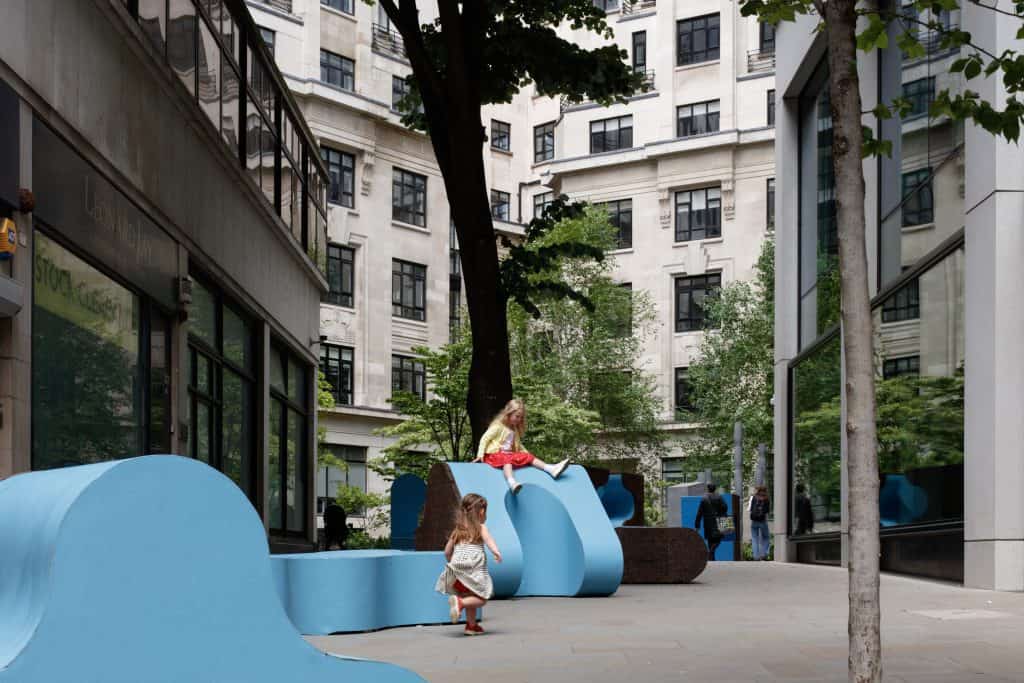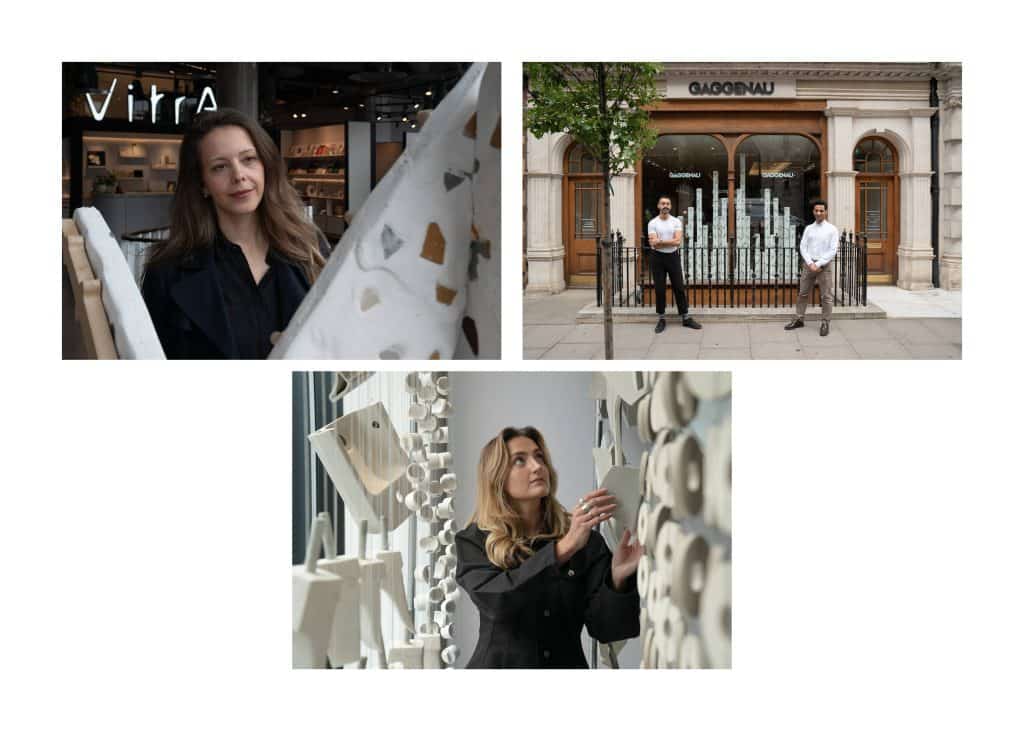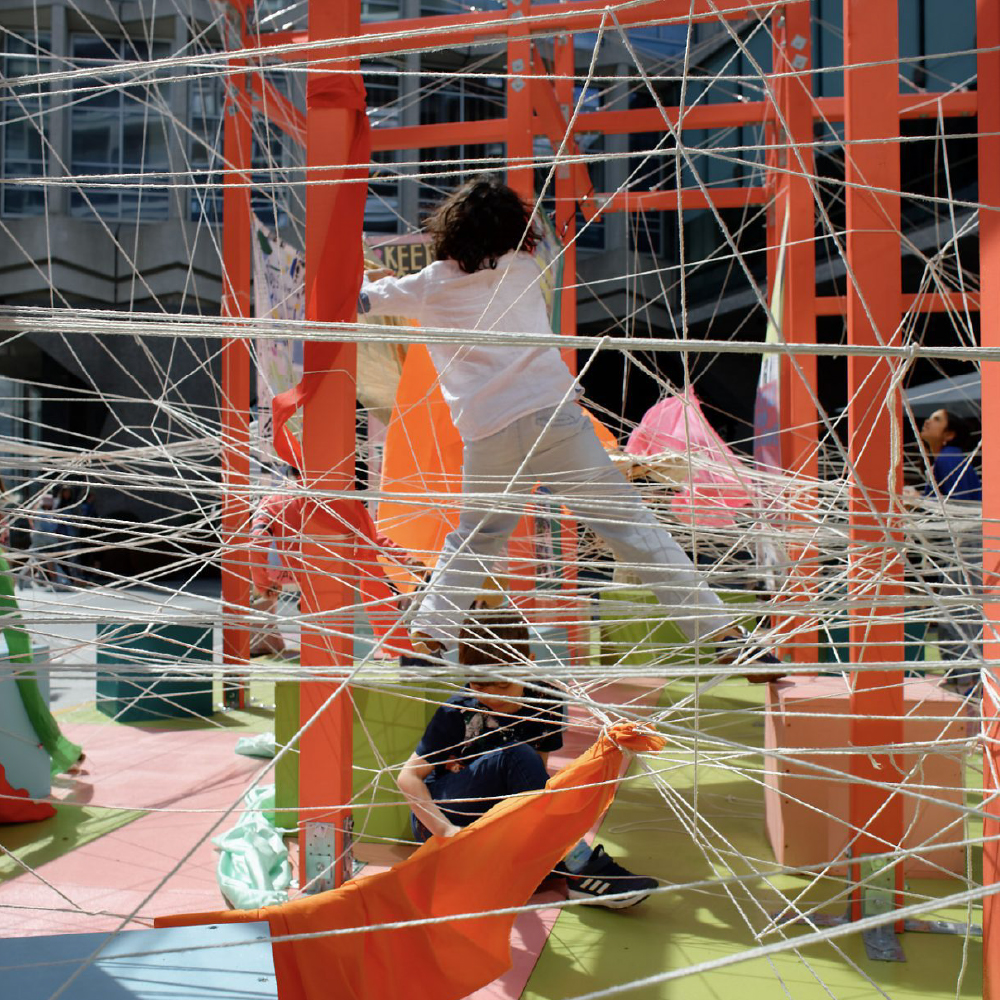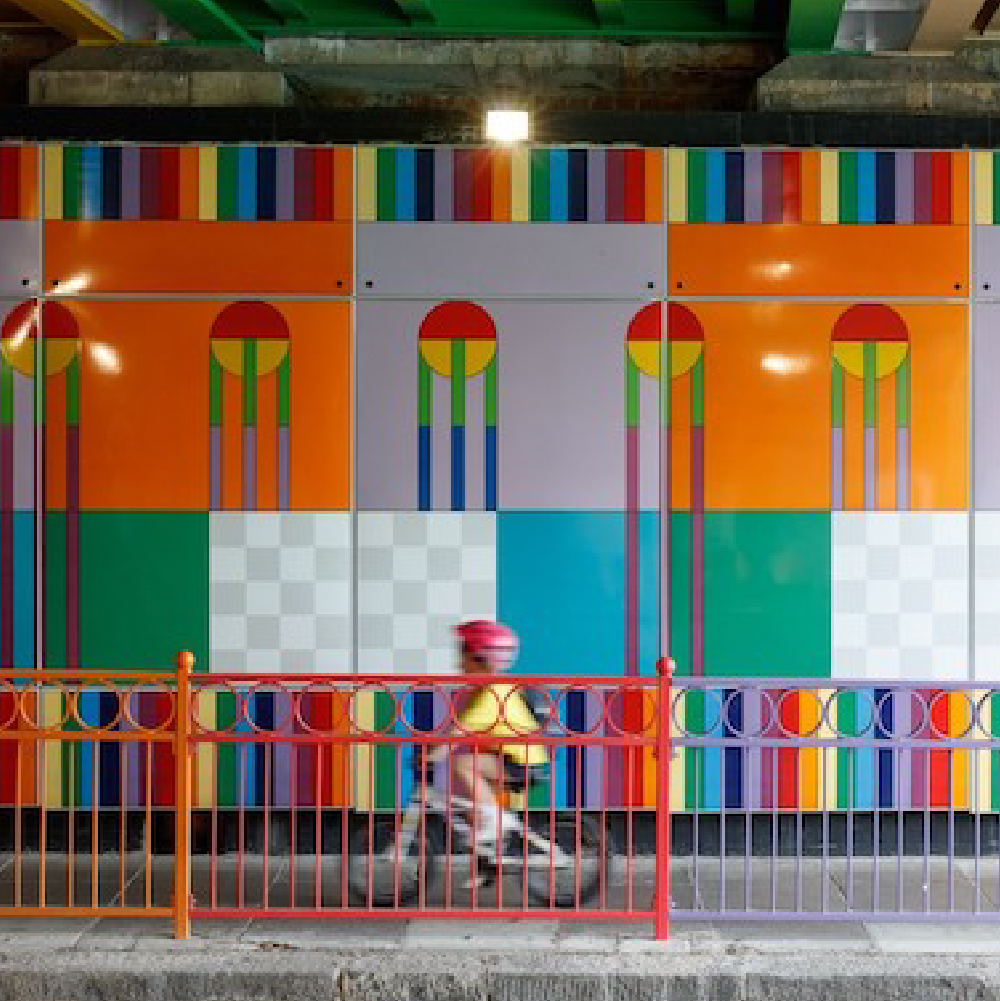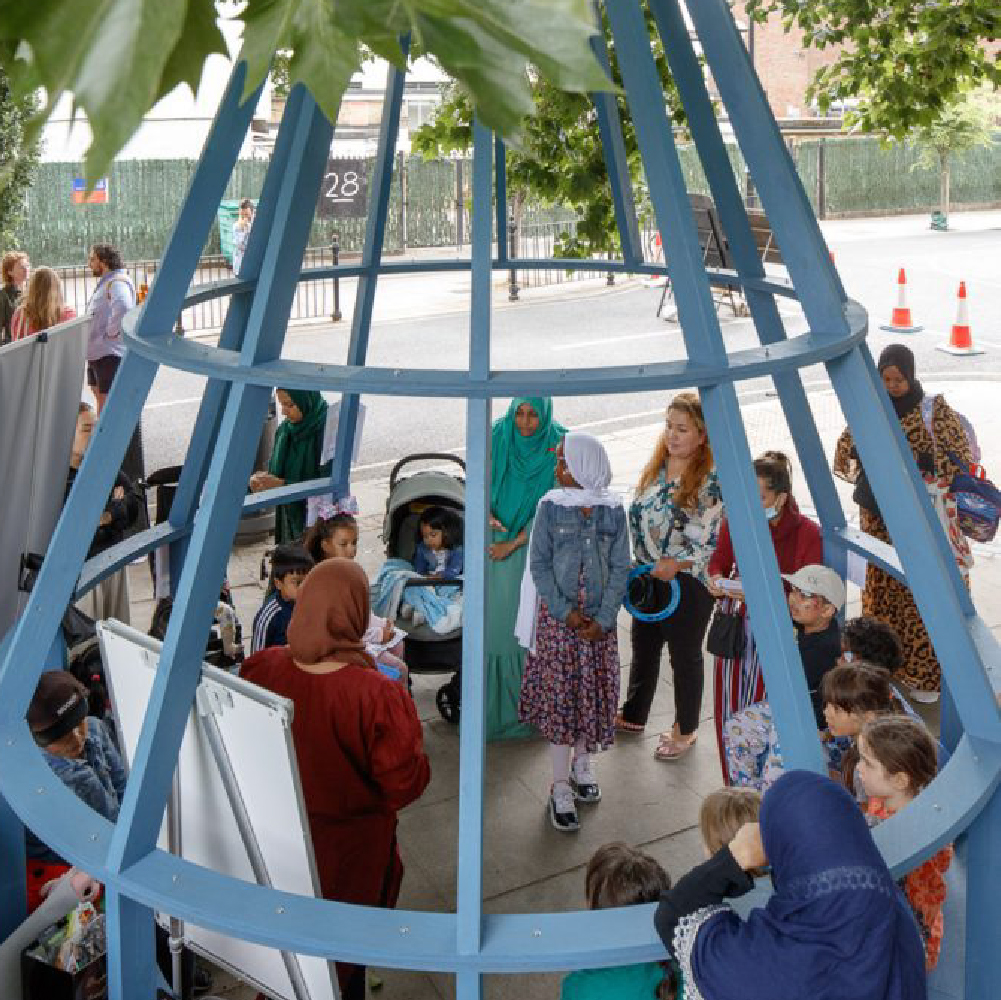The LFA and the City of London Corporation have revealed the shortlisted teams and designers to create three ‘parklets’ – miniature landscaped spaces to be installed across the City of London when the LFA returns to London’s streets in June 2019.
Architects, designers and artists were invited to submit a design proposal for a parklet that will transform a kerbside area into a place to rest, relax and admire the City – bringing additional life and greenery to the City’s streets and public spaces during the world’s largest annual architecture festival.
Seven teams and designers overcame competition from 91 entrants to make this shortlist, which comprises:

Fatkin is an emerging architectural practice based in West London. Founded in 2014, the team offer a dynamic, flexible approach to each project. Working across a range of typologies and scales throughout the UK, they have significant experience delivering aspects of masterplan visions for revitalised public realms, residential and transport nodes.

Formed in 2019 in San Francisco, FS Studio is a team with divergent backgrounds that balance each other, leading towards rich stories from which to draw the bones, arch and details of a space. The team desire to improve public and private space through sustainably innovative, and vibrant places connecting everyone through the Story of their Space.

PARTI is an emerging architecture and design practice. Formed in 2015 by Eleanor Hill and Tom Leahy, the London-based studio is working on a range of projects locally and internationally. This includes a rural hotel in Australia; a mixed-use scheme in the Californian desert; and residential projects in the UK.

Patrick is an architectural designer who undertakes small scale public interventions; his work celebrates the idiosyncrasies that make spaces memorable and engaging.
SoHo+Co, Rupert Muldoon and Deborah Smith

SoHo+Co is a London-based design practice founded by Jasmin Sohi and Tom Holberton, and is collaborating with curator Deborah Smith and landscape designer Rupert Muldoon. The team enjoy the tension between the defined and the undefined to create ideas, stories, objects and spaces, where human interaction completes the scene.

Tim Denton is a Manchester based design and build studio, specialising in the design and production of bespoke furniture, spaces and structures. Founded in 2016, the practice comprises three core team members, who share a passion for creating objects that engage with people and the surrounding environment.

Urben is an urban design and planning studio founded in 2012. The team believe that cities should be vibrant places that are open and accessible to everybody. Since 2016 they have collaborated with Wood Street Walls on placemaking projects which aim to help activate & enliven the public realm by combining landscape and public art.
The City Parklets competition is being judged by an expert panel comprising:
- Simon Glynn (City Public Realm – City of London Corporation)
- Patrick Hegarty (Open Spaces – City of London Corporation)
- Tamsie Thomson (Director – London Festival of Architecture)
- Giles Radford (Highways – City of London Corporation)
- Jennifer Dixon (EMEA Architecture Leader – AECOM)
As well as a £6,500 budget for each parklet, the competition offers an outstanding opportunity for exposure to a vast public audience in the City: home to 8,000 residents and a working population of 513,000 people, as well as the 10 million tourists who visit each year.
We’re delighted to see such a rich mix of architecture and design talent on our shortlist for the City Parklets project and look forward to seeing how their proposals will help introduce more greenery and life to disused kerbside spaces. As we explore ‘boundaries’ in 2019, we’re excited for the shortlisted teams to interpret that theme, with interventions that create miniature havens amidst the bustle of the City, for hundreds of thousands of people to enjoy during the Festival.
Chris Hayward, Chairman of the Planning and Transportation Committee at the City of London Corporation, said:
“It’s fantastic to see the range of ideas brought forward as part of this competition. We want to encourage creative uses of space that can be enjoyed by workers, residents and tourists across the Square Mile. The shortlisted teams showcase how this can be delivered through innovative design.”

